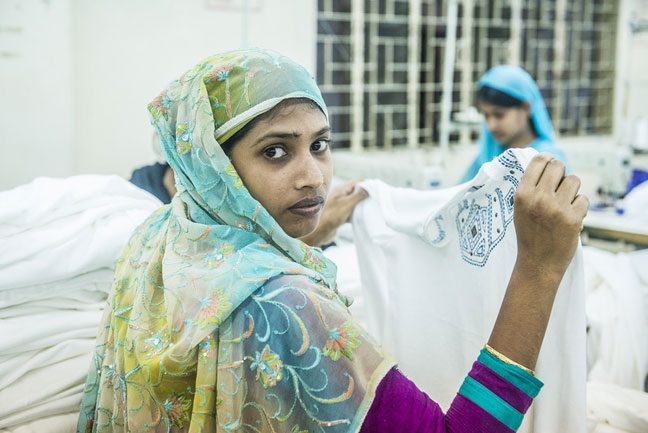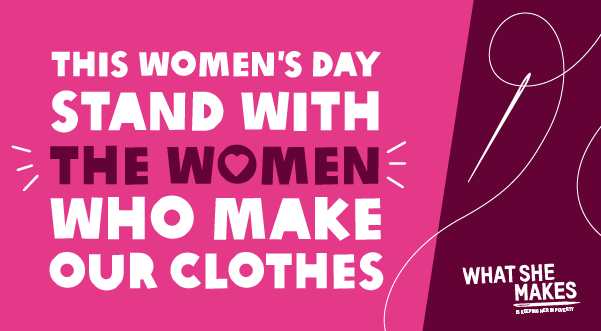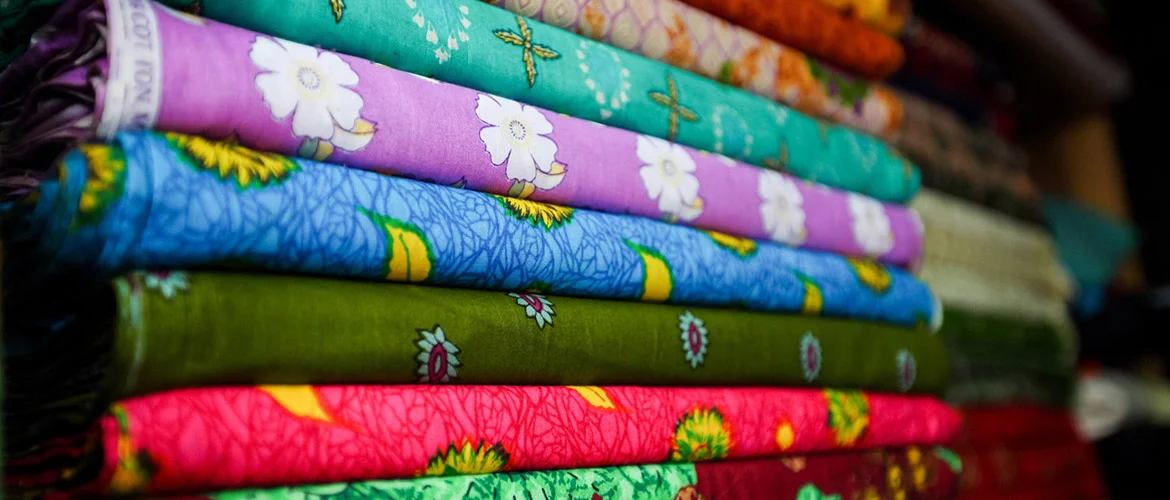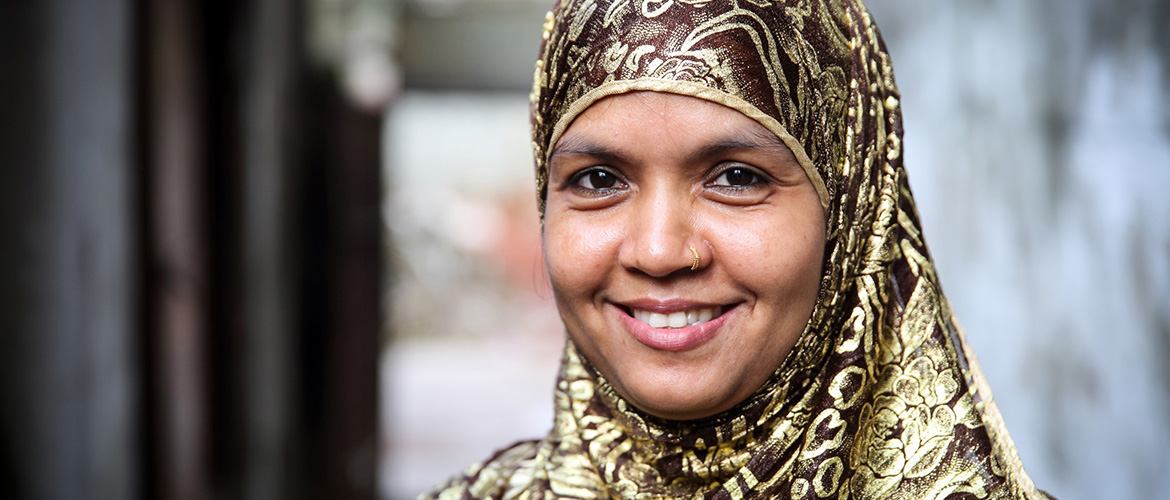Last week, Sarah Crawford, a Sydney mum of three, delivered a petition to Woolworths asking the company to join the Bangladesh Fire and Building Safety Agreement and ensure Bangladeshi workers making Big W clothing are able to work in safe factories.
Here is Sarah’s story of delivering her petition to Woolworths in Sydney:
My Thursdays typically involve a whole lot of housework and tidying up after my three delightful but messy children! However today I swapped my track pants for a smart skirt. Why, you ask? I’ll happily do whatever it takes to advocate for others living in poverty and today I found myself at Woolworths head office, meeting with the Head of Corporate Responsibility and Sustainability.
On April 24th 2013 a multistory building with several garment factories collapsed in Dhaka, Bangladesh, and killed more than 1000 people. The tragic event provided an insight into how an impoverished nation works at great cost to supply the wants of thriving nations.
Have you ever asked where your clothing comes from? Fair Trade tea and coffee is sold in mainstream supermarkets but have you ever thought to ask if your clothes were ethically made? Up until recently I loved shopping and was always very pleased when I nabbed a ‘bargain’. But what I’ve come to realise is it’s not often a ‘bargain’, more often than not someone in another country has paid a great cost.
As I have looked further into this issue I have found that most garment workers in Bangladesh are lucky to earn $37 a month. Working 12-14 hour days, workers take home enough money to survive but not thrive. Bangladesh is one of the poorest countries in the world and it is estimated by Unicef that almost 50% of children under five have stunted growth due to malnutrition. This is an alarming statistic, a whole generation of children with special needs and limited resources to cope!
I could walk into Big W today and find a good fitting pair of jeans for $14. I most definitely couldn’t make them for that, and nor would anyone in Australia. Big W is having some of its stock made in garment factories in Bangladesh to make its stock cheaply and ensure company profit. But what of the mothers and fathers who spent great energy and effort making the jeans, you have to ask, were they fairly compensated? Were they working in a building that was even safe?
Today I took a petition that my sister initiated, with over 8000 signatures on it and presented into Woolworths. The petition was asking Big W to sign on to the Bangladesh Fire and Building Safety agreement. Surely the company could at the very least publish the location of all its suppliers and verify that each workplace is safe?
In my meeting with the Head of Corporate Social Responsibility, I asked that our petition be handed over to Woolworths Managing Director and CEO Grant O’Brian. I hope that the more than 8,000 signatures moves the company to take action!
So as I now go to change back into my track pants and head for the school gate, can I inspire you to also create change? I’m learning that individually I can do a little, but together we can do much! Get out of your comfort zone and speak up for those without a voice!
Sarah
A note from Oxfam Australia:
More than 50 companies internationally have now joined the Bangladesh Fire and Building Safety Accord. Following consumer and public pressure, Kmart and Target announced on 7 June that they were joining the Bangladesh Accord. Clothing company, Forever New, announced on Monday 17 June that they were also signing on.
On Thursday 20 June Oxfam sent a further 1,800 signatures to Woolworths and to Cotton On asking them to sign up to this important safety initiative which will ensure independent building inspections, health and safety training for workers and the right for employees to refuse dangerous work.
On Friday Cotton On announced they were joining the Accord. We are hopeful Woolworths/Big W will join the Accord very soon.

Please sign our petition to Big W (Woolworths) calling on them to immediately join the Bangladesh Fire and Safety Accord.



